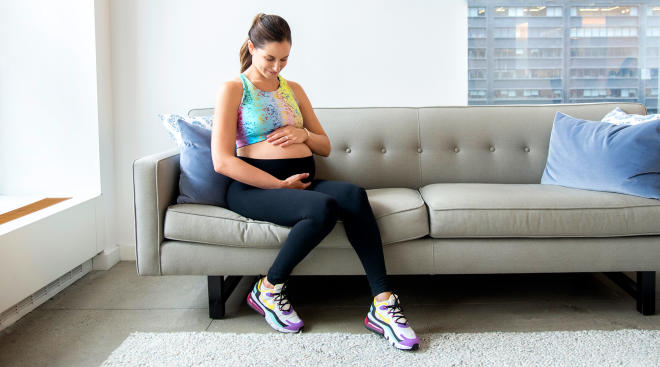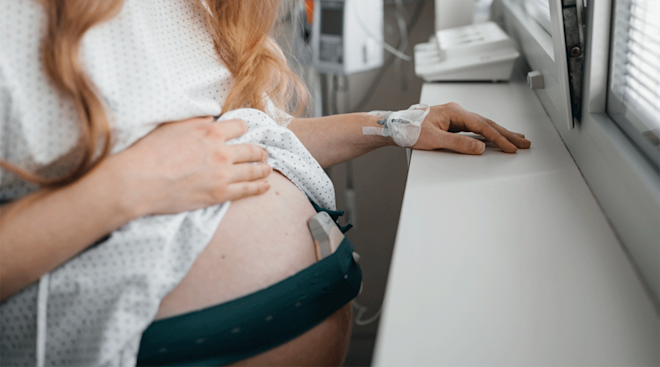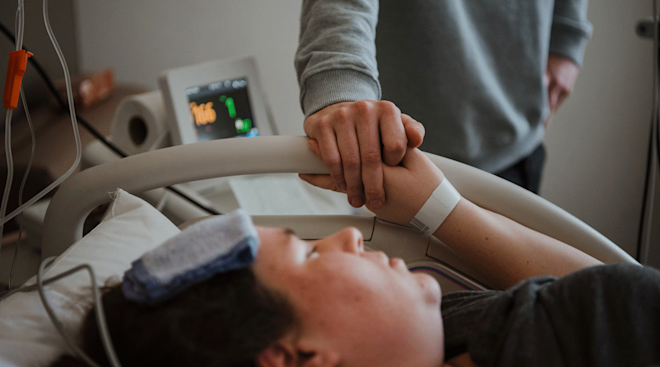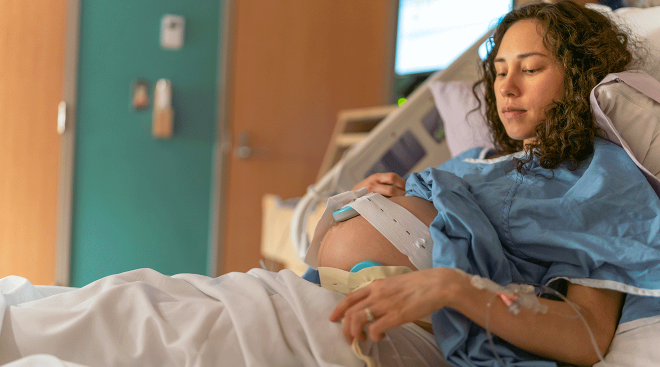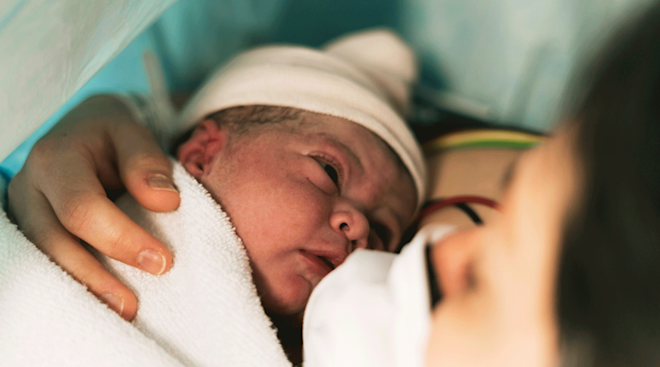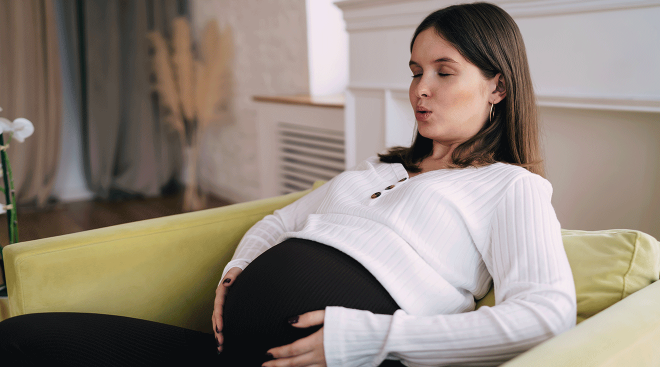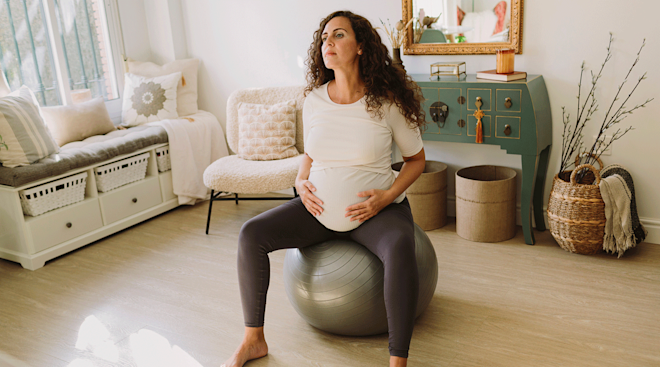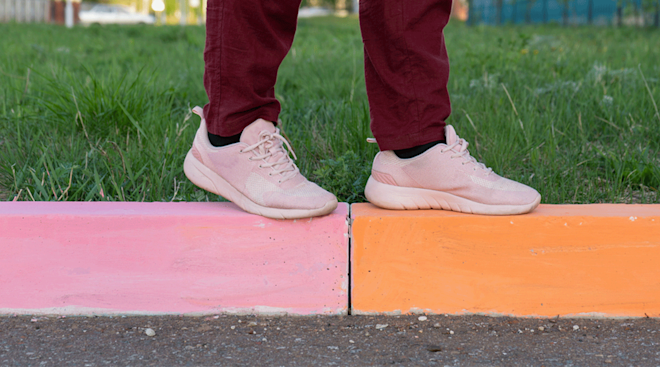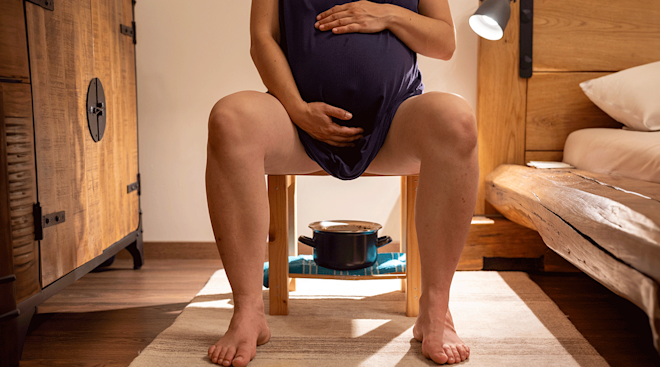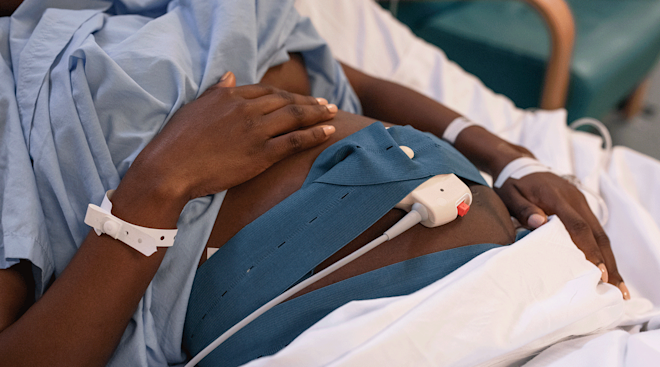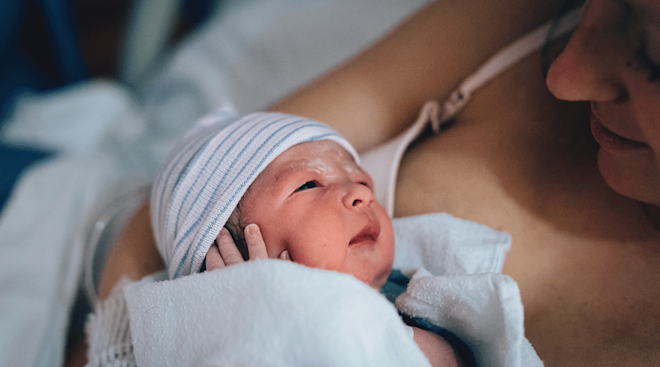Pooping During Labor—Will It Happen? (and How to Get Over It)
Let’s face it: Babies are beautiful, but childbirth is messy. Along with your newborn, you’ll “deliver” amniotic fluid, urine, blood—and often some poop, says Danielle Seltzer, MD, an ob-gyn with Summit Health in West Orange, New Jersey. (Not to mention the placenta!) While pooping during labor is completely normal, many moms-to-be and pregnant people feel anxiety or embarrassment about the idea of it. Ahead, read about why you might poop while in labor—and why you should flush away your concerns.
In short, yes! Poop and childbirth are pretty closely linked. In fact, Jennifer Meyers, CNM, a certified nurse midwife at Mayo Clinic Health System in La Crosse, Wisconsin, estimates that at least half of women who give birth vaginally experience pooping while in labor.
“We don’t have a lot of research on how often it happens because it’s completely natural and not a medical problem,” says Rebecca Rimsza, MD, a maternal-fetal medicine specialist with Nebraska Medicine. “It would be like assessing how often people sneeze—it just happens!” When it does, it’s usually during the late stages of labor, as baby’s head moves down the vaginal canal, adds Tiffany Pham, MD, an ob-gyn and medical advisor at Flo Health.
One major reason for pooping during labor is that your body releases prostaglandins when you have contractions, says Pham. The prostaglandins, which are hormone-like substances, can also stimulate your bowels. Plus, you use the same pelvic floor muscles to push out baby as you do to push out poop.
Baby’s descending head can also put pressure on the nerves that are stimulated when you have an urge to go. Christine Noa Sterling, MD, an ob-gyn and founder of Sterling Parents, puts it this way: “Sometimes baby’s head pushes the poop out while they move down the vagina. Other times, because you push baby out the same way you push poop out, it comes due to your pushing efforts.”
It’s important to know that if you go, it’s a good sign. “When I’m coaching a patient through a vaginal delivery, I tell them if they poop while pushing, they’re doing it right,” says Catherine Caponero, DO, a staff physician in the department of obstetrics and gynecology at Cleveland Clinic. Adds Sterling: “We actually get excited when we see [poop]. It means baby’s coming down and you’re pushing effectively. I’ve literally given the thumbs up to a nurse when the patient started pooping.”
Plus, pooping is much better than the alternative: constipation, says Paul Quinn, PhD, CNM, a certified nurse midwife and professor in obstetrical nursing and nursing research at Dominican University New York. “Hard stool in the colon can actually impede the descent of baby through the birth canal, providing a form of a mechanical barrier to the progress of labor.”
Experts say that you likely won’t feel it if you’re pooping while in labor. “You may not know if you’re pooping because the pressure of baby and the pressure of needing to poop can be very similar,” says Rimsza. Most likely, your provider won’t even tell you it’s happening because it doesn’t affect the delivery. Experts say you especially won’t be able to tell you’re pooping during labor if you had an epidural.
Plus, your labor and delivery team is likely highly skilled at discreetly managing bowel movements. “The OB team is ready,” reassures Quinn. “We have multiple drapes that go under a woman’s buttocks, and the delivery kits contain extra towels for that specific purpose. The stool is simply wiped away and discarded.”
Realistically, you’ll probably be too pooped to care whether you’ve pooped. When you’re in labor, “the urge to push and your pain from the labor and contractions will be so distracting you’ll hardly think about this at all,” says Pham. But if your thoughts do turn to your tush, you can use them to help progress your labor: Healthcare teams sometimes tell women and birthing parents to “push like you need to poop,” she points out. “Channel your pooping energy,” Seltzer encourages. “It will help you get one step closer to the delivery of baby.”
Nope. (Sorry!) “There are no concrete ways to avoid pooping during childbirth,” says Rimsza. In the past, healthcare providers gave enemas or laxatives to make you poop before delivery, but they’ve since been found to cause dehydration, pain and discomfort, explains Caponero.
“Poop happens,” says Caponero. “Our job is to clean it up and do our best to help you deliver your beautiful baby safely.” So, try to wipe away any concerns you might have. “I promise we aren’t secretly grossed out or bothered by it,” says Meyers. “Our goal is to help keep you from feeling embarrassed and to reassure you that it’s completely normal. Like the children’s book says, ‘[Everyone] poops.’”
Please note: The Bump and the materials and information it contains are not intended to, and do not constitute, medical or other health advice or diagnosis and should not be used as such. You should always consult with a qualified physician or health professional about your specific circumstances.
Plus, more from The Bump:
Catherine Caponero, DO, is a staff physician in the department of obstetrics and gynecology at Cleveland Clinic. She earned her medical degree from Lake Erie College of Osteopathic Medicine in Erie, Pennsylvania.
Jennifer Meyers, CNM, is a certified nurse midwife at Mayo Clinic Health System in La Crosse, Wisconsin. She earned her master’s degree in nursing from the Frontier School of Nursing in Hyden, Kentucky.
Tiffany Pham, MD, is an ob-gyn and medical advisor at Flo Health. She earned her medical degree from The University of North Texas Health Science Center.
Paul Quinn, PhD, CNM, is a certified nurse midwife and professor in obstetrical nursing and nursing research at Dominican University New York. He earned his PhD from the City University of New York Graduate Center.
Rebecca Rimsza, MD, is a maternal-fetal medicine specialist with Nebraska Medicine and an associate professor in maternal-fetal medicine at the University of Nebraska Medical Center. She earned her medical degree from Creighton University School of Medicine in Omaha, Nebraska.
Danielle Seltzer, MD, is an ob-gyn at Summit Health in West Orange, New Jersey. She earned her medical degree from St. George’s University School of Medicine.
Christine Noa Sterling, MD, is an ob-gyn and the founder of Sterling Parents.
Cleveland Clinic, Prostaglandins, November 2022
Learn how we ensure the accuracy of our content through our editorial and medical review process.
Navigate forward to interact with the calendar and select a date. Press the question mark key to get the keyboard shortcuts for changing dates.

































